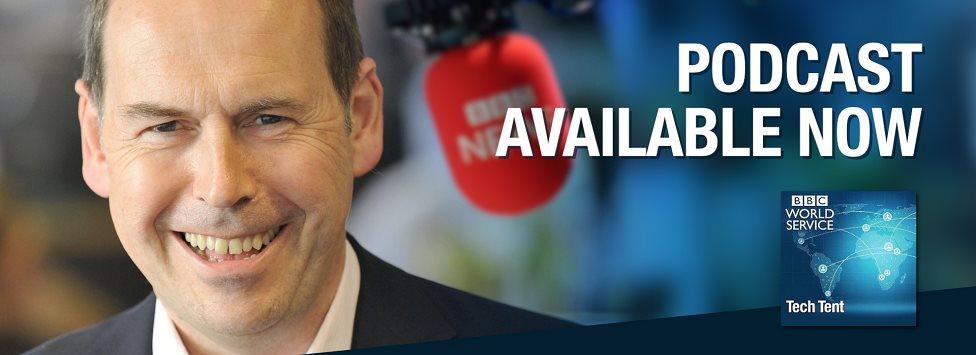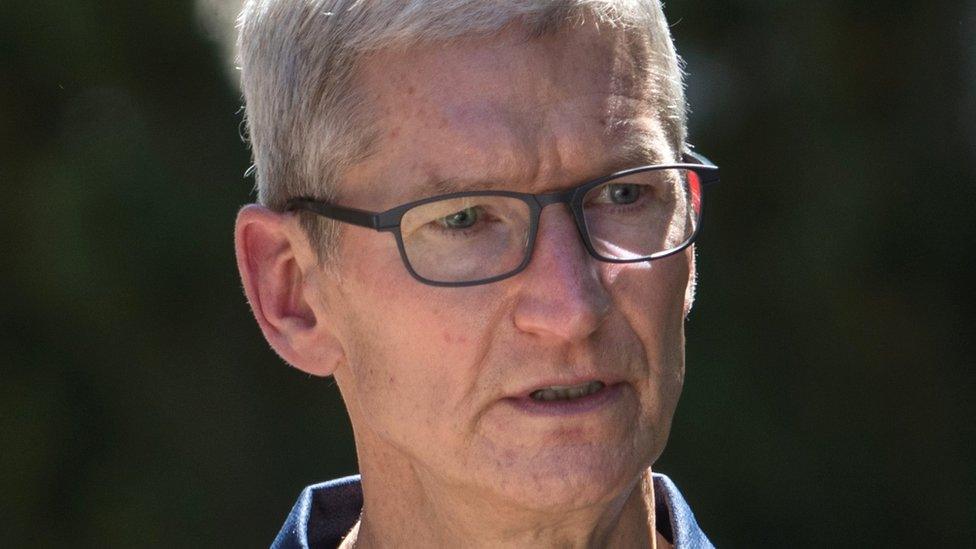Tech Tent: Apple's security under scrutiny
- Published

Stream or download, external the latest Tech Tent episode on the BBC website
Listen to previous episodes on the BBC website
Follow Tech Tent, external on Twitter

Will Apple's gold-plated reputation with consumers be dented by an embarrassing security foul-up? Also on the podcast this week: is Bitcoin really using more energy than Ireland? And what kind of qualities do you need to succeed as a professional e-sports player? We try to answer those questions on this week's Tech Tent.
Apple: the root of the problem
For a long time, Apple has boasted - with some justification - that it has an excellent record of keeping its devices safe from intruders. In any case, with PCs having the lion's share of the computer market, hackers and security researchers used to spend little time hunting down vulnerabilities in Macs.
But on Tuesday a Turkish software developer tweeted this: "Dear @AppleSupport, we noticed a *HUGE* security issue at MacOS High Sierra. Anyone can login as 'root' with empty password after clicking on login button several times."
It sounded unlikely but it was true. What it meant was that anyone who got hold of an Apple computer running the latest operating system could get root access to the machine with very little trouble.

Apple's Tim Cook
"Root access is a bit like having a master key to the building," Prof Angela Sasse, from University College London, tells Tech Tent. "It's really bad news."
She explains that it means an intruder could install new software, such as spyware, on your computer. And she is surprised that this issue was not spotted before High Sierra was released. "Normally before release you would test that root access is adequately protected."
Apple moved quickly to release an update to patch this loophole in the operating system's defences. So will it suffer any long-term consequences in terms of a loss of consumer trust? Neil Mawston, from the tech consultancy Strategy Analytics, says Apple is a very clever company with a great brand.
But he has some concerns: "We're seeing this gradual tick-tock of mis-steps in delivery." Recently, we have seen the delay in the launch of Apple's Homepod - and another, albeit much more minor, security issue.
"If products are late or they have lots of flaws and that keeps on building up momentum, then that negative press coverage eventually catches up with them."
A decade ago a furious Steve Jobs would have roamed the Cupertino campus to find someone to eject from the building for such a serious error. Tim Cook's style is very much more measured, but do not be surprised if there is some movement in the upper ranks of Mac management in the coming months.
Bitcoin's energy conundrum
It has been a dizzying week for anyone who takes an interest in the crypto-currency Bitcoin. It started 2017 worth just under $1,000 (£740) but this week it soared past the $10,000 mark.
In the days that followed, the volatility we have come to expect from the Bitcoin market has become even more pronounced. In the space of three hours, its price dropped by more than $2,000, only to bounce back a few hours later.
The debate over whether this is a speculative bubble or the future of money gets hotter by the moment. But so too do concerns over the amount of energy used in the process of mining Bitcoin and recording transactions.
As banks of computers whir away, many of them in China, the electricity consumed as they solve increasingly complex mathematical problems gets ever greater.
According to one study, Bitcoin is now using more energy each year than the whole of Ireland, and will soon surpass Morocco's energy use.
This does not sound sustainable, but as long as the value of Bitcoin keeps rising, miners will not care about the electricity bills.
And meanwhile the incentive to plant software on websites to hijack visitors' computers to help mine Bitcoin will only increase.
Playing for high stakes
Competitive video gaming or e-sports is a rapidly growing business. Market research firm Newzoo thinks this young industry will make nearly $700m in revenue this year.
And it is not all about consoles - mobile gaming is increasingly popular. This weekend, London hosts the Clash Royale Crown World Championships, a global tournament entered by more than 27 million players, according to Supercell, the Finnish creators of the mobile game Clash Royale.

The Rum Ham and ElecTr1fy
Only a few of those will be professional e-sports players. This new breed can earn substantial sums, not only from tournaments but from sponsors, advertisers and from fans who watch them streaming their practice sessions on Twitch or YouTube and just send them money.
So what does it take to make it as one of these new sports stars? We hear from ElecTr1fy - yes, it is important to have an arresting name - who tells us his YouTube channel has added 40,000 subscribers and had generated 40 million views over the last month.
"You need fast instincts - every delay can cost you the game," he tells us. "And you need to get into your opponent's head."
That message is reinforced by The Rum Ham, a gamescaster - another new profession - providing live commentary on e-sports. He says it is about making good decisions quickly.
"They're making decisions where hundreds of thousands of dollars are on the line in a split second. These players are doing mental maths, spatial awareness, predicting the outcomes of a combat before the troops are even on the field - all in a three-minute game play."
And the prize? Well the best players are making more than a million dollars a year. Time to put away the crossword, forget about the Sudoku and get down to some serious gaming.